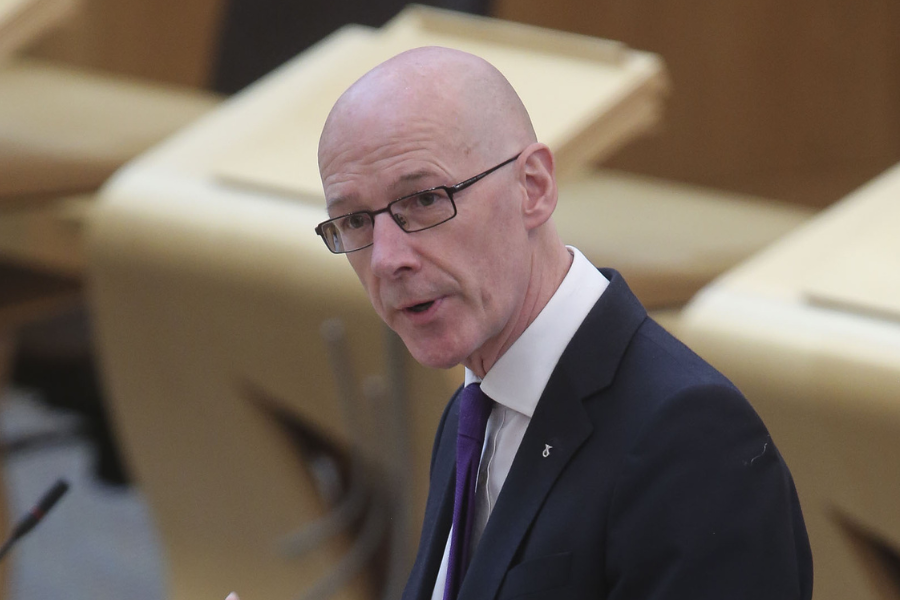
SCOTLAND'S Deputy First Minister has insisted he has “no legal standing” to negotiate a deal to end strike action that has left rubbish piled up on the streets of Edinburgh – despite unions pleading for ministers to take part in talks.
John Swinney met union leaders on Wednesday evening after action by council cleansing staff spread from Edinburgh to other parts of the country.
He said afterwards that while he is “determined to be helpful”, a deal to end the pay row has to be reached by unions and employers at local government body Cosla.
Unions have warned their action will escalate if an agreement cannot be reached to increase workers’ wages.
Wendy Dunsmore of the Unite union said: “It’s going to escalate, it will escalate throughout the winter and we are urging the Scottish Government to get quickly get round the table with us and Cosla to explore and thrash out a deal for our workers.”
Cleansing staff at 14 councils in Scotland are now out on strike, with unions targeting schools and early years centres next – with a three-day walkout planned for next month which could see some schools forced to close.
Unite said while there had been talks with Swinney on Wednesday evening there is “no new offer on the table” and “the strikes continue”.
Unions argue the Scottish Government, which provides the bulk of funding for councils, must now become directly involved.
But Swinney said there needs to be “intense dialogue and negotiation” between Cosla and the unions to resolve the dispute.
He told BBC Radio Scotland’s Good Morning Scotland programme: “What I have encouraged Cosla to do is to enter into intense negotiations with the trade unions, the trade unions want those intense negotiations to help to resolve matters.
“I will be as helpful as I possibly can be to try to bring agreement together.”
He said he is “determined to be helpful” but also insisted: “I can’t negotiate this agreement, I am not the employer, I have no legal standing to negotiate.”
Dunsmore said Wednesday’s discussions with the Deputy First Minister had looked at looked at how councils could use existing funding previously earmarked for other areas “to make sure that workers get a fair and decent pay offer”.
She said this “hopefully will mean a bigger pay rise”.
Unions have already rejected a 5% wage increase – funded in part with £140 million of Scottish Government cash – claiming this is insufficient in the face of rampant inflation and soaring bills.







